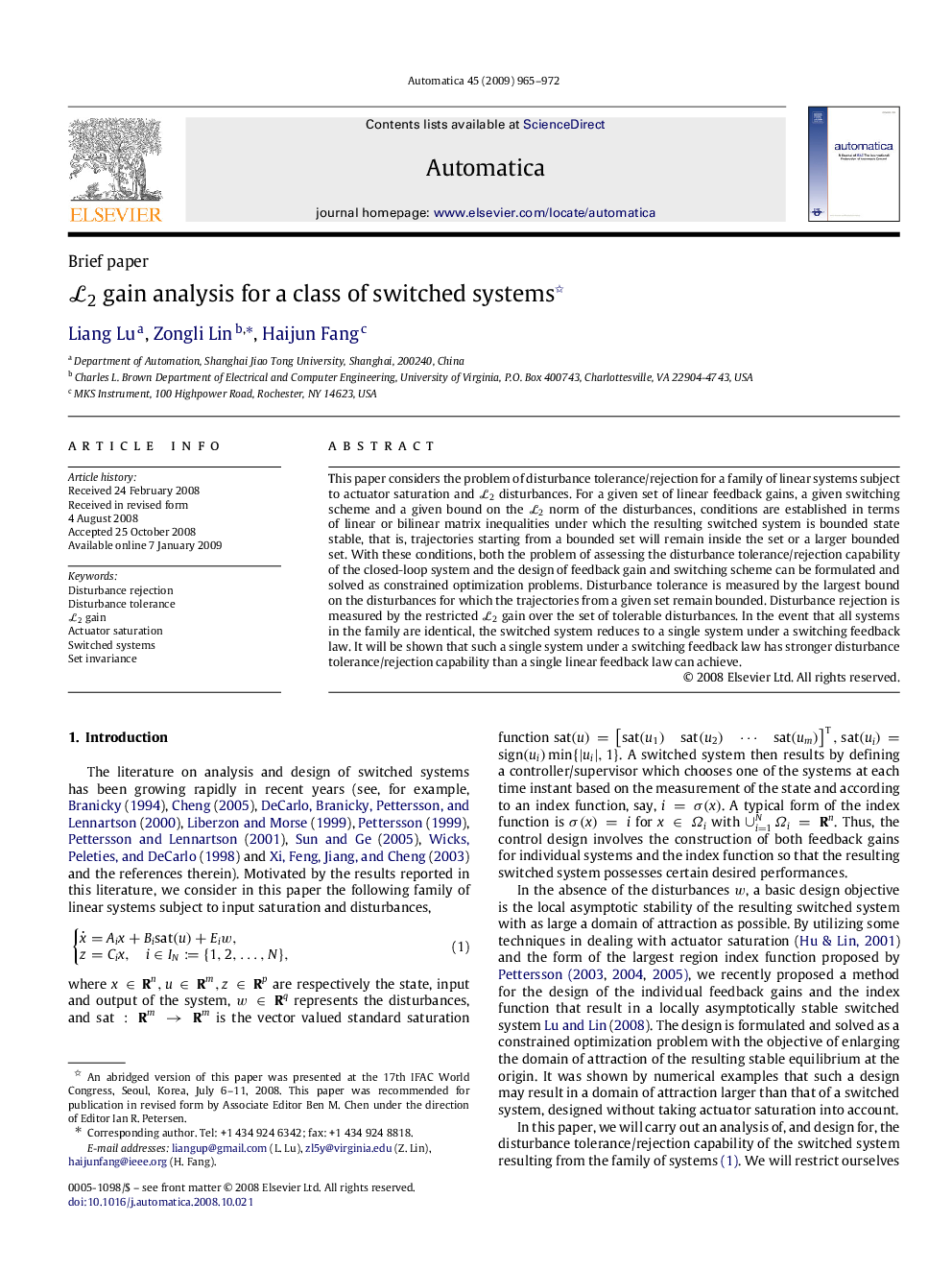| Article ID | Journal | Published Year | Pages | File Type |
|---|---|---|---|---|
| 698099 | Automatica | 2009 | 8 Pages |
This paper considers the problem of disturbance tolerance/rejection for a family of linear systems subject to actuator saturation and L2L2 disturbances. For a given set of linear feedback gains, a given switching scheme and a given bound on the L2L2 norm of the disturbances, conditions are established in terms of linear or bilinear matrix inequalities under which the resulting switched system is bounded state stable, that is, trajectories starting from a bounded set will remain inside the set or a larger bounded set. With these conditions, both the problem of assessing the disturbance tolerance/rejection capability of the closed-loop system and the design of feedback gain and switching scheme can be formulated and solved as constrained optimization problems. Disturbance tolerance is measured by the largest bound on the disturbances for which the trajectories from a given set remain bounded. Disturbance rejection is measured by the restricted L2L2 gain over the set of tolerable disturbances. In the event that all systems in the family are identical, the switched system reduces to a single system under a switching feedback law. It will be shown that such a single system under a switching feedback law has stronger disturbance tolerance/rejection capability than a single linear feedback law can achieve.
